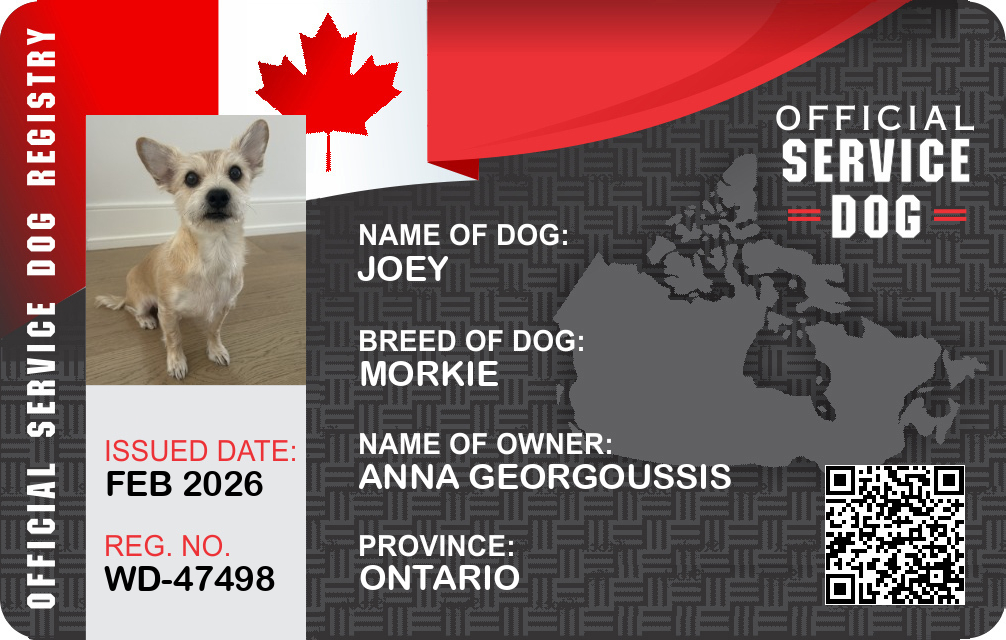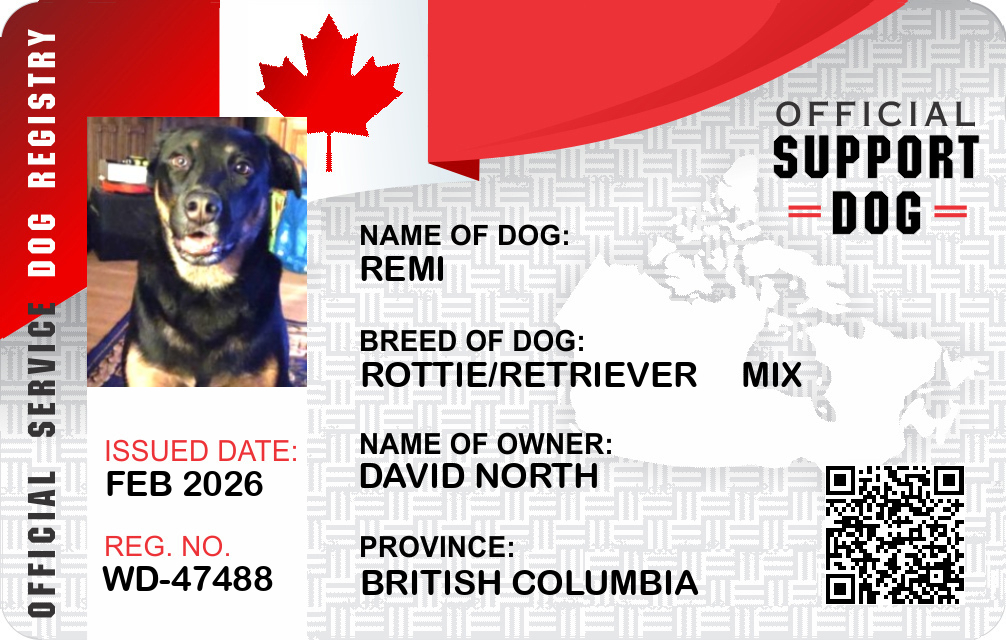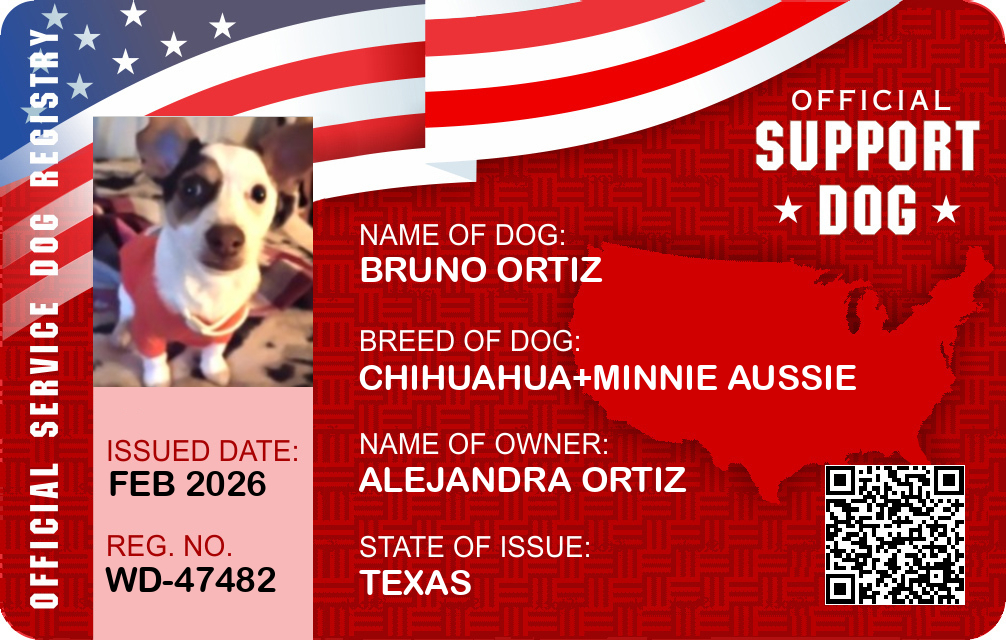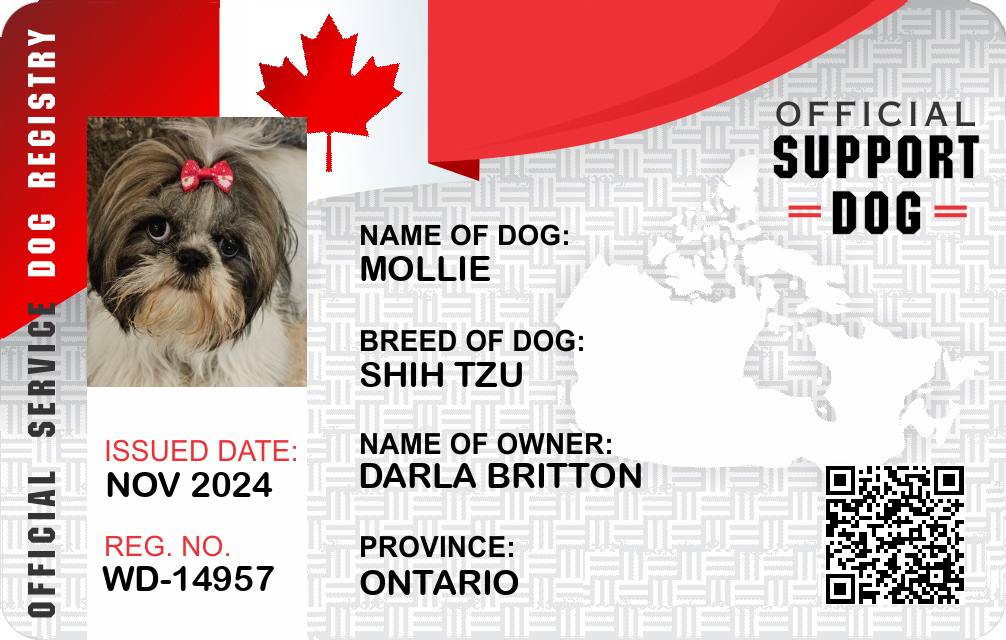New Jersey Emotional Support Animal Laws
Get Your Documents
Example State Cards


Overview of ESA and Legal Definitions in New Jersey
What is an Emotional Support Animal?
An Emotional Support Animal (ESA) provides comfort and support to individuals with mental or emotional disabilities. Unlike service animals trained to perform specific tasks for people with disabilities, ESA are primarily companions that help alleviate symptoms of emotional or psychological conditions, such as anxiety, depression, or PTSD. In New Jersey, as in other states, ESA do not require specialized training like service animals. Their primary role is to offer a therapeutic presence that improves the psychological well-being of their owner, as recognized under federal housing laws.
How ESA Differ from Service Animals
While both ESA and service animals support individuals with disabilities, there are critical distinctions between the two. Service animals, typically dogs, are trained to perform specific tasks directly related to a person’s disability, such as guiding the blind or alerting those with hearing impairments. Conversely, ESA provide general emotional support and do not require task-specific training. Under the Americans with Disabilities Act (ADA), only service animals have protected access rights to public spaces. However, ESA have rights in housing under the Fair Housing Act (FHA) and for travel under the Air Carrier Access Act (ACAA) but do not generally have similar access rights in other public areas.
Key Federal Laws Affecting ESA (e.g., FHA, ACAA)
Federal laws play a significant role in defining ESA rights. The Fair Housing Act (FHA) mandates that individuals with ESA must be permitted to live with their animals, regardless of a landlord’s pet policies, as long as the owner can provide documentation of their need. The Air Carrier Access Act (ACAA) previously ensured ESA could fly with their owners without additional pet fees, but recent rule changes now limit these protections primarily to service animals. Recognizing these federal laws and their application is essential for understanding how ESA are perceived legally in New Jersey.
State-Specific ESA Laws in New Jersey
Housing Rights and Responsibilities
Under the FHA, residents of New Jersey with ESA are entitled to reasonable accommodation in housing. This means landlords must allow ESA even in pet-restricted housing, provided the tenant presents appropriate documentation from a qualified healthcare provider. Landlords can request evidence that the ESA alleviates symptoms of a disability, but they cannot demand extensive medical records. While tenants are responsible for any damage caused by their ESA, they cannot be charged additional pet fees simply for having an ESA.
Public Access and Accommodation
In New Jersey, ESA do not have the same rights as service animals concerning public access. This means that ESA cannot accompany their owners into places like restaurants, stores, and other public venues that do not usually allow pets. Business owners have the right to deny access to ESA in these settings, given that ESA are not specifically trained to perform tasks that aid with disabilities.
Transportation and Travel Rules
With the Department of Transportation’s changes to the ACAA, commercial airlines now treat ESA as regular pets rather than service animals. This shift allows airlines to impose typical pet policies on ESA, such as carrying them in appropriate carriers in the cabin or transporting them in the cargo hold. New Jersey residents traveling by air need to check with specific airlines to understand their policies regarding ESA, as these can vary widely.
Employment and Workplace Considerations
While the ADA provides comprehensive guidelines for accommodating service animals in the workplace, it does not extend these provisions to ESA. In New Jersey, employers are not legally required to allow ESA in the workplace. However, employees may request reasonable accommodation under the New Jersey Law Against Discrimination and engage in an interactive process with their employer to determine appropriate adjustments for their needs.
Documentation, Requirements, and Processes in New Jersey
ESA Letters and Who Can Issue Them
To have an ESA recognized under federal housing rules in New Jersey, an individual must obtain a letter from a licensed healthcare professional. These professionals can include psychologists, psychiatrists, therapists, or general physicians, who must assert that the ESA is part of a prescribed treatment plan for a mental or emotional disability. The letter should be on official letterhead, dated, and include the professional’s license type, license number, and state of jurisdiction.
Landlord, Business, and Provider Verification Rules
Landlords are permitted to verify an ESA letter’s authenticity by contacting the issuing healthcare provider, but they cannot ask for specific details about an individual’s condition. Businesses and public service providers do not have the same obligation to accept ESA unless explicitly covered by federal law—primarily concerning housing.
Rights, Limitations, and Legal Risks
Rights ESA Owners Have in New Jersey
ESA owners in New Jersey have the right to keep their animals in housing with appropriate documentation, challenging no-pet policies and pet fees that landlords might otherwise impose. They are also given certain protections when it comes to travel, though these are increasingly restricted with recent rule changes.
Limits on ESA Protections and Common Restrictions
While ESA owners have some rights, these are limited. ESA owners should not expect access to restaurants, retail establishments, or other public places that do not typically allow pets. Likewise, air travel may involve navigating airline-specific policies that treat ESA as regular pets, requiring travel crates or placement in the cargo hold. New Jersey does not have additional state-level protections beyond federal requirements, making it crucial for ESA owners to understand both realms.
Penalties for Fraud or Misrepresentation
Misrepresenting an ESA as a service animal or falsifying ESA documentation can lead to legal repercussions in New Jersey. Individuals who attempt to claim their ESA as a service animal in restricted areas may face fines, housing eviction, or deny boarding on airlines. Maintaining transparency is paramount, as fraudulent actions undermine legitimate needs for assistance animals.
Practical Guidance for ESA Owners in New Jersey
How to Qualify for an ESA Legitimately
Qualifying for an ESA involves obtaining a legitimate assessment from a licensed mental health professional. This process requires an evaluation of your mental health condition and a determination of whether an ESA is integral to your treatment plan. Keeping documentation current and renewing it as necessary is critical for ensuring compliance with housing rights.
How to Talk to Landlords, Airlines, and Employers
- Landlords: Explain your rights under FHA, providing an ESA letter upon request, and respectfully discussing any concerns they might have.
- Airlines: Check specific airline policies ahead of travel, have documentation ready, and calmly discuss policies concerning ESA upon check-in.
- Employers: Approach the topic from a perspective of seeking reasonable accommodation, providing an ESA letter if requested to substantiate any accommodations needed.
Summary of ESA Laws in New Jersey
- Emotional Support Animals (ESA): Provide support for individuals with mental health conditions but lack specialized training.
- Legal Protections: Include housing accommodations under the FHA but limited public access rights.
- Air Travel Regulations: Now more restrictive under ACAA changes, treating ESA as regular pets.
- Necessary Documentation: Requires a legitimate ESA letter from a licensed healthcare provider.
- Avoiding Misrepresentation: Ensures compliance with the law, avoiding penalties for fraud.
- Engagement: Engage in informed, respectful dialogue with housing providers, employers, and airlines.
- Ongoing Education: Stay updated on state and federal laws impacting ESA.
By understanding these laws and best practices, ESA owners in New Jersey can assert their rights responsibly while fostering cooperative relationships with landlords, transportation providers, and employers.
Get Your Documents
Example State Cards













